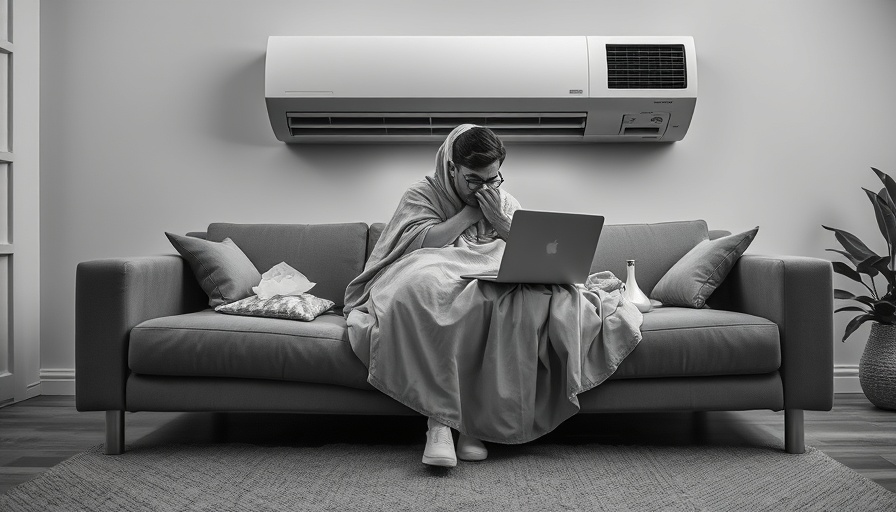
Can Air Conditioning Be Bad for Your Health?
As summer heat settles over the Grand Strand of South Carolina, residents in Myrtle Beach, North Myrtle Beach, and surrounding areas often rely heavily on air conditioning (AC) to stay comfortable. However, a burgeoning question arises: can air conditioning actually make you sick? The truth is complex, revealing both benefits and potential health risks associated with this modern convenience.
The Lifesaver of Summertime
AC systems are invaluable during oppressive heat waves, protecting not only comfort but also lives. According to statistics, heat-related deaths in the U.S. doubled from 1999 to 2023, particularly affecting vulnerable populations such as the elderly and individuals with compromised immune systems. AC cools the air, preventing heat-related illnesses that can escalate during the hot summer months in areas like Surfside Beach and Pawleys Island.
Beyond mere cooling, air conditioning serves a critical function—it filters out harmful pollutants. Airborne pathogens and particulate matter, such as PM2.5 from vehicle exhaust and wildfires, are reduced thanks to AC systems. Brent Stephens, an environmental engineering expert, highlights that consistent AC use helps keep the indoor air cleaner. For residences along the coast, where humidity is high, the AC also works to decrease moisture, thereby minimizing conditions conducive to bacterial growth and mold.
The Downside of Sealed Spaces
However, the comforts of AC are not without drawbacks. Experts warn that extended exposure to air conditioning can lead to respiratory issues, as dry air can irritate the airways. Dr. William Checkley, a pulmonary specialist at Johns Hopkins, stresses that while modern indoor living offers efficient temperature control, excessive reliance may result in dry air, which can affect respiratory health. When humidity levels drop too low, your body compensates by adding water vapor to inhale air, which can lead to discomfort and respiratory ailments.
How to Optimize Your Air Conditioning
Your relationship with air conditioning can be healthier if you adopt some simple practices:
- Regular Maintenance: Ensure filters are changed regularly to improve air quality and system efficiency.
- Humidity Control: Use a humidifier to maintain balanced humidity levels in your air-conditioned spaces.
- Ventilation: Periodically open windows to allow for fresh air exchange, especially during cooler times of the day.
- Limit Overuse: Try to take breaks from air conditioning when possible, allowing for a natural environment that promotes better respiratory health.
Considering Local Conditions
In coastal regions like Murrells Inlet and Garden City, where humidifiers and dehumidifiers play vital roles in maintaining air quality, residents can strategize how to use AC effectively. Understanding the balance between cooling and maintaining airflow is particularly beneficial in this region, where high humidity can be uncomfortable but is also crucial for respiratory health.
The Overall Impact of Air Conditioning
While AC undoubtedly plays a significant role in modern comfort and health, it's essential to navigate its use wisely. By implementing simple strategies to mitigate potential downsides, residents of the Grand Strand can enjoy a cool environment without sacrificing wellness. After all, as the summer heat intensifies, striking a balance between comfort and health becomes paramount for everyone, from Litchfield Beach to Georgetown.
As the summer unfolds, residents should take these insights on AC seriously. Regular maintenance, controlled humidity levels, and a healthy balance between indoors and the outdoors can enhance not only physical health but also overall summer enjoyment. With these practices in mind, you can stay both comfortable and healthy during the heatwave.
If you find value in this article, consider spreading awareness around healthy air conditioning practices. Ensure your family, friends, and fellow community members are informed—let’s beat the heat together!
 Add Row
Add Row  Add
Add 





Write A Comment